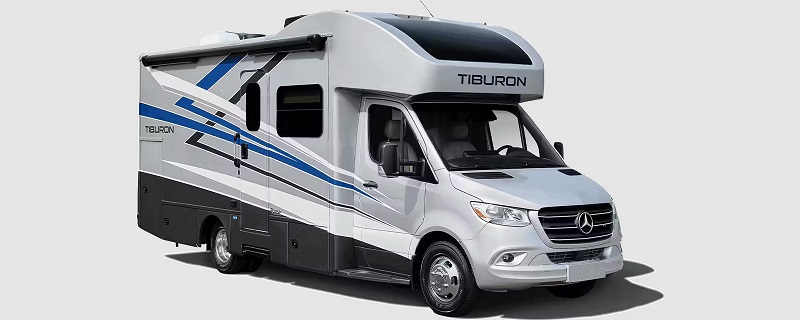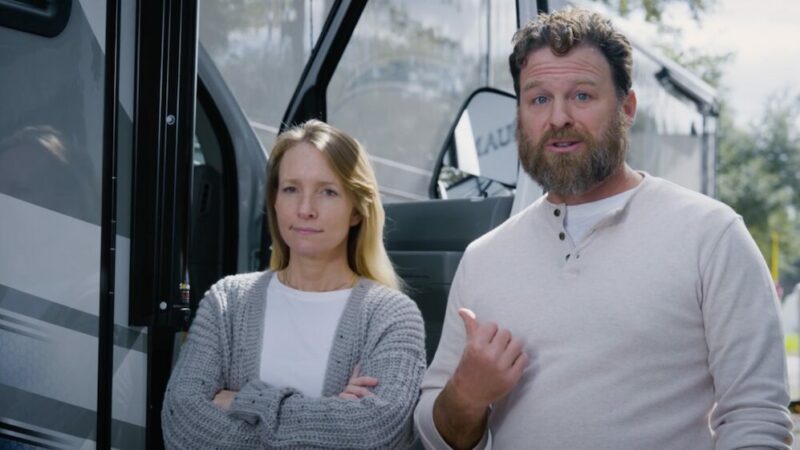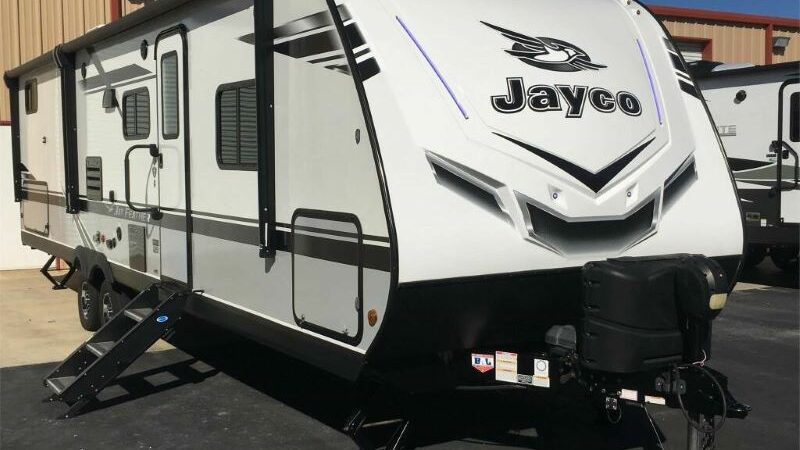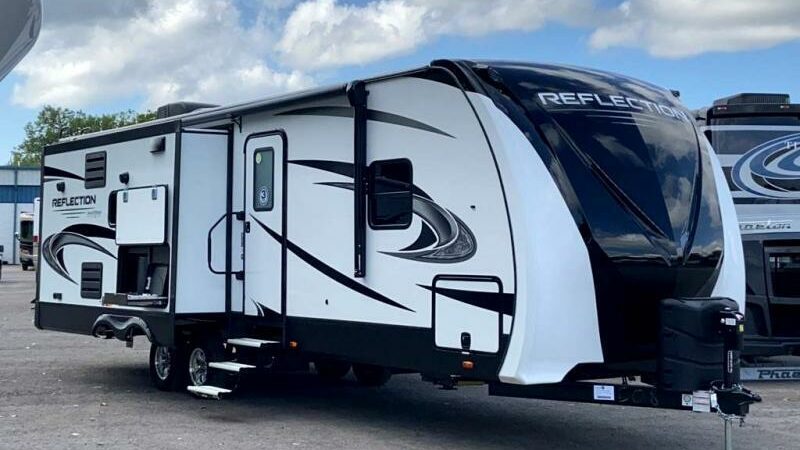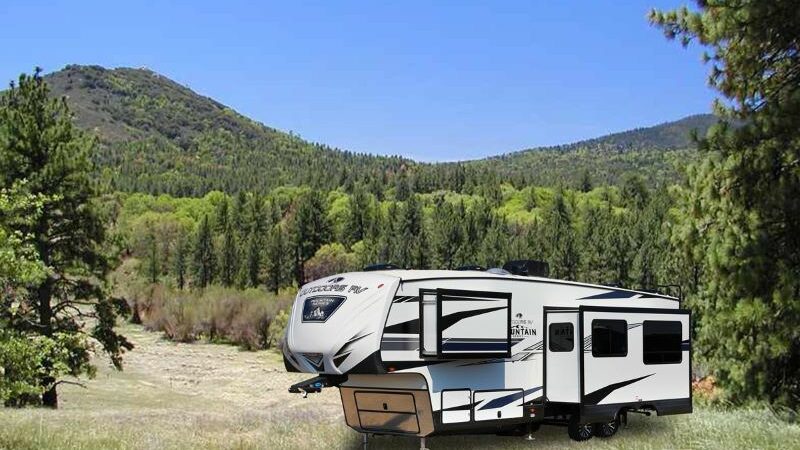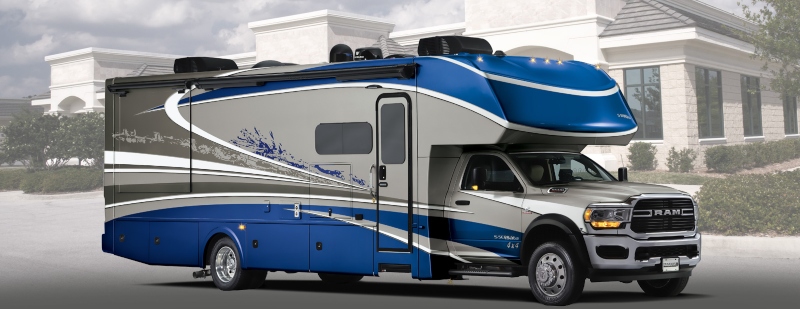Best States For Full-Time RVing
Thanks for your support! If you make a purchase using our links in this article, we may make a commission. And, as an Amazon Associate, I earn from qualifying purchases. See the full disclosure here.
Full-time RVing offers a degree of freedom you won’t find anywhere else. But it does come with some serious life changes and questions. What are the best states for full-time RVing? How will your expenses scale, how will you work, what’s a domicile state, how you get your mail?
If you’ve spent your entire life fairly stationary, it’s an eye-opening lifestyle change and that’s putting it lightly. That’s not to say it’s a struggle, just a completely different way of doing things, making a living, and seeing the world on your own terms.
Depending on how you run this roadshow, it may be a far more affordable alternative to a traditional residence or it may be more expensive. RVing full-time requires a substantial degree of planning. As they say in the Marine Corps: “Overcome, adapt, and improvise.”
Can You Legally Live Full-Time In An RV?
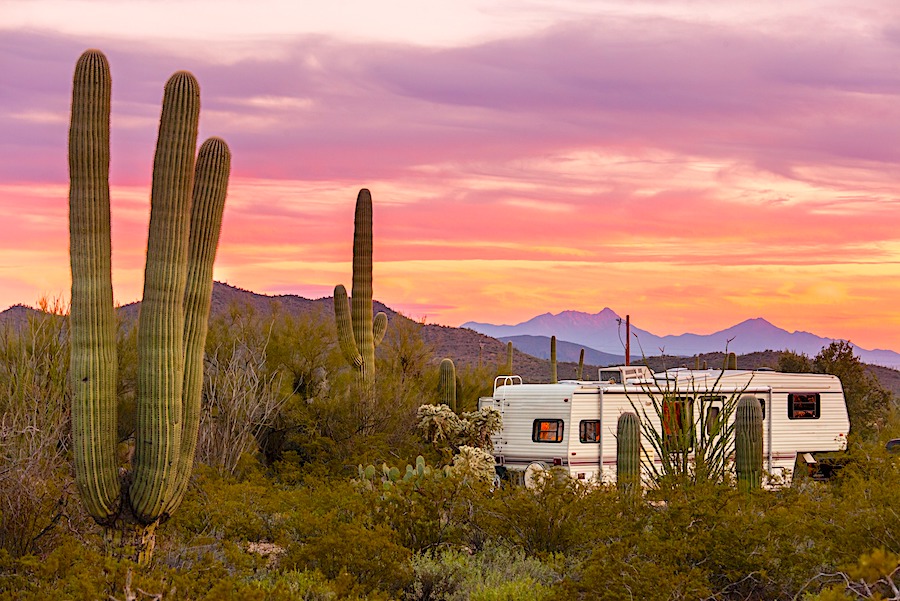
It’s perfectly legal to live full-time in an RV, so long as you abide by the laws of that state. For instance, some states don’t allow you to claim your RV as a residence, so you have to go around that rule by establishing a domicile (more on that below).
There’s always a workaround or a loophole to take advantage of. Thanks to these loopholes, living in your RV, no matter the state, is legal, with certain stipulations.
You also need a place for your RV. You can’t just go around parking on whatever side street floats your boat. Just because there’s a cul-de-sac nearby, that doesn’t make it a campground. There are basically two ways to embrace full-time RVing and two approaches to each.
The first is completely stationary. You park your RV on your property or rented land and live in it. Simple as that. Most states will require you to have hookups for power, water, and sewer. You can also rent a campground spot by signing a lease if you plan on staying there more or less permanently.
The second type is on the move, whether you make pit stops once every couple of weeks, seasonally, or monthly. The two approaches to each are boondocking (living for free, on your own land, or in legal boondocking areas), or utilizing shore power wherever you go.
What Is A Domicile?
A domicile is your state of permanent residence. While you are free to move about the country to your heart’s content, you still need a primary residence for tax purposes, legal, and mail.
Plus, even if you are staying permanently in a particular state, that state may not allow RV residences. You get around this by establishing a domicile in a state that does allow it. Knowing the best states for full-time RVing includes more than just where to travel.
For instance, Michigan does not allow it, however, you are more than welcome to live in your RV within the Wolverine State if your permanent residence is in Florida, California, or another state that does allow RVs as full-time residences.
Want to live in Michigan for 6 months out of the year? Go stay in South Dakota for 24 hours, establish residency in the county of your choice and, problem solved.
Your domicile is your physical address, so you will need to set up a P.O. Box, work with family members to send your mail to you or hold it (sometimes an unsafe option when dealing with domicile), use USPS for mail forwarding, or use a professional mail forwarding service.
For the boondockers out there, the Bureau of Land Management has a ton of land throughout the United States available for free boondocking. There are also truck stops, casinos, beaches, and even Walmart or Cracker Barrel parking lots where you can pull in for an evening or two.
Other permanently on-the-move RVers take advantage of Harvest Hosts, a massive network of boondocking-ready land that includes wineries, farms, breweries, museums, and more.
Many full time RVers, including Mike and Susan who own RVBlogger.com and consider themselves 3/4 time RVers, have a Thousand Trails membership. This allows them to camp for free ( or for a very low nightly fee) in participating campgrounds all across the US.
Best States For Full-Time RVing
While there are many states that accommodate full-time RVing, to one degree or another, some states just do it better. What makes one state better than any other? Well, what it has to offer the adventurer in you, for one.
How many state parks it has, the sights and sounds, your seasonal preferences, and the local culture are just a few of the more entertainment-side reasons.
1. Florida
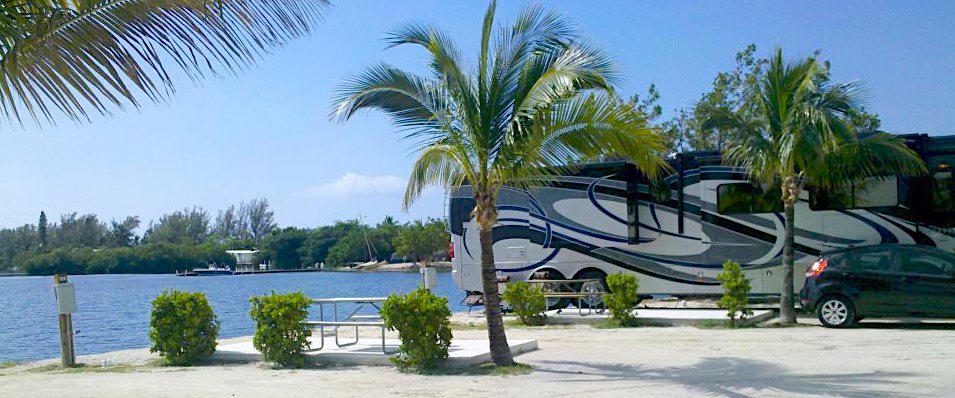
Our Pros and Cons
✅ No state income tax to deal with
✅ Warm climate for the winter months
⛔ Summer temps are brutal, especially from central Florida down to the Florida Keys
Florida is nothing if not a seasonal destination for RVers, whether it’s part-time vacationing or full-time RVing.
Once you’re finished enjoying the fall sights and climate in the Smokey Mountains, it’s time to head south before the chill truly sets in. Parking your rig in Florida permanently comes with a lot of advantages as well.
For one, you won’t have to deal with the winter chill in an RV not built for all seasons. Even a four-season RV will struggle with a Minnesota winter so harsh that tossing a pitcher of water in the air turns it into instant snow.
There’s no state income tax in Florida, which makes it a popular domicile choice as well.
Florida is also a place of raw, ethereal beauty, with murky, fog-laden swamps, gorgeous white-sand beaches along the panhandle, stunning sunsets and sunrises, and the tropical atmosphere of a Caribbean vacation.
2. Arizona
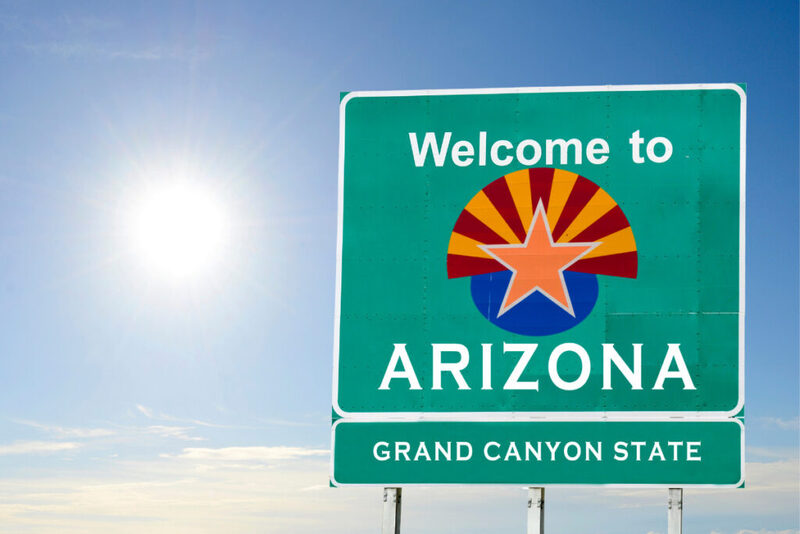
Our Pros and Cons
✅ The Grand Canyon
✅ Springtime weather is some of the best in the country
⛔ Convoluted and expensive residence establishment policy and procedure
Arizona offers a different kind of beauty than that of Florida, but no less stunning for the difference. Sweeping orange, red, and yellow vistas become one with the sunset on most evenings. And, who can argue with the Grand Canyon, one of the most popular national parks in the country?
If you have a domicile established elsewhere, it’s in your best interests to keep it there. While Arizona isn’t the most difficult state to handle residency, it’s not a simple matter either. It’s also not on the cheap side when you have to switch everything over.
Fortunately, it’s a fantastic destination for the full-time RVing crowd, especially in the spring. If you continue to return to the state every springtime, the nearly countless natural wonders and attractions throughout the state will occupy years of spring visits, with still more secret wonders to uncover in the Grand Canyon State.
3. South Dakota
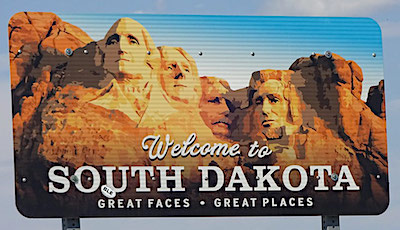
Our Pros and Cons
✅ No income, personal property, inheritance, or pension taxes
✅ To establish South Dakota as your domicile, all you need to do is stay for 24 hours
⛔ Cannot use a business address or a campground address to register to vote
One of the greatest benefits of South Dakota for full-time RVing is the low cost of everything. Auto insurance rates are low, there is no state income tax, and the cost of living is very low.
The cost of living goes well beyond just maintaining a house payment or renting a home, so RVers get to see that benefit as well. Also, if you’re on the lookout for an RV, South Dakota is an excellent state to start your adventure, with only a 4% tax on RV purchases.
Regardless of how you come across your RV, South Dakota is a gorgeous state, with plenty to do for the adventurous spirits out there. The Badlands National Park, Mount Rushmore, and the Black Hills are must-see destinations.
South Dakota has a pretty low population and a high percentage of rural real estate. If you love the idea of peace and quiet, It’s hard to think of a better state, especially for boondocking.
South Dakota also has a thriving healthcare industry, which is something full-time RVers should definitely look into.
4. Texas
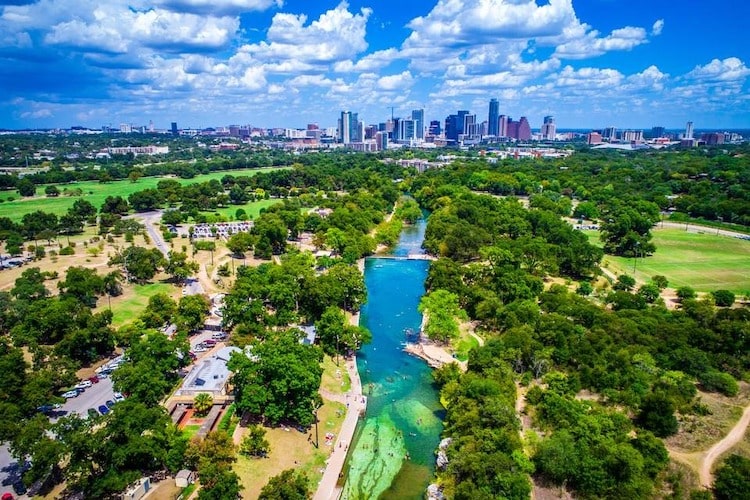
Our Pros and Cons
✅ A huge number of various ecoregions
✅ Low cost of living and vehicle registration requirements
⛔ Texas, like Florida, has giant flying cockroaches
Texas is a lot like Florida, with a lot more variety in terms of ecoregions. Texas is huge and, as such, has it all.
There are beaches, mountains, prairies, rolling hills, deep forests, and arid desert-like climes. If there’s a season, climate, or topography you want to explore, you never have to leave the state.
Feeling a little chilly? Head south. A little too warm? Head north. Need a little humidity in the air? Head east. Texas also happens to be a very friendly state for the full-time RVing lifestyle.
Low vehicle registration fees and no state income taxes go a long way for standard residents, and even more so for full-time RVers looking to take full advantage of reducing expenses.
They say that you can place every single person in the world inside the state of Texas and no one could hit someone else with a baseball. That’s a lot of real estate to cover!
There are also 65 national parks in the Lone Star State, with so much to see that you will never cover it all in a single lifetime.
5. Virginia
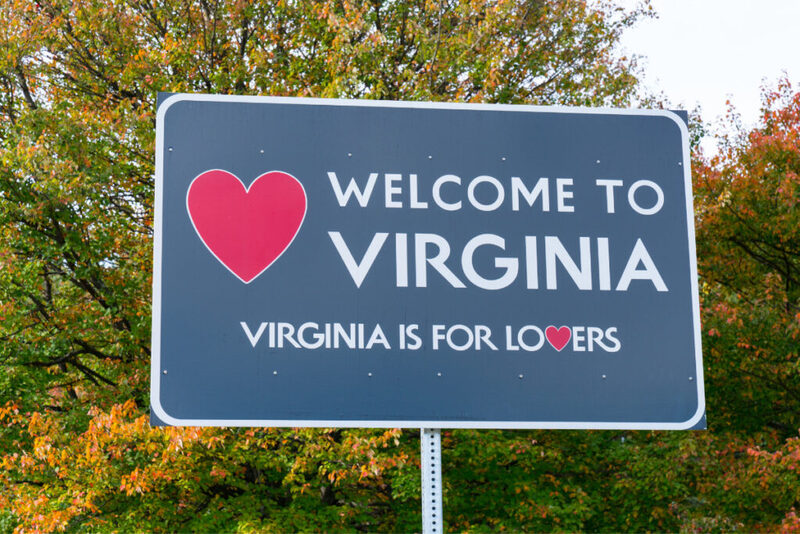
Our Pros and Cons
✅ Straddles the border between too hot and too cold throughout the year
✅ Virginia offers a wide variety of topography and American history to explore
⛔38th in overall tax burden with ad valorem taxes and annual vehicle inspections
Virginia also offers thousands of miles of trails to explore, from the Atlantic Ocean coastline to the Blue Ridge Mountains. There is a ton of adventure throughout the state, especially within the George Washington National Forest, the Jefferson National Forest, and Douthat State Park.
Since it generally takes an expensive vehicle to haul an RV or a pricey motorhome, Virginia’s annual car tax is brutal to some, with the current rate a shade over 4%. In fact, a not-so-surprising number of Virginians register their vehicles out of state, taking advantage of whatever loopholes they can get their hands on.
Other than that, Virginia is a fantastic state to park your RV in, especially if you are a lover of American history. It seems like the entire nexus of American history took place in Virginia.
Specifically from Potomac Mills down to Spotsylnavia and Fredericksburg. A single visit will entail more Civil War and Revolutionary War information than you can handle within a week.
6. Oregon
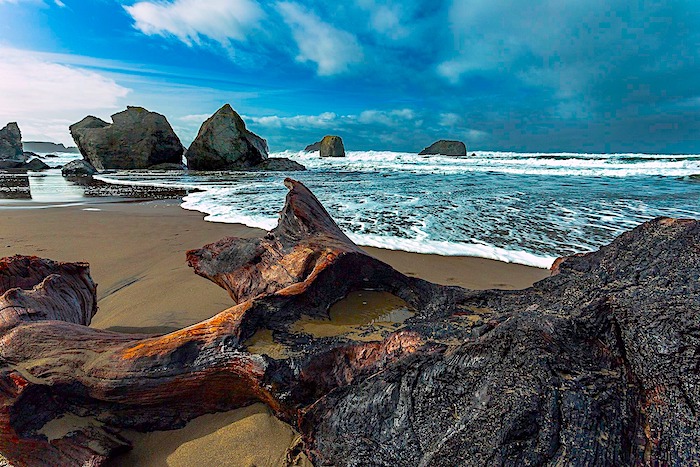
Our Pros and Cons
✅ Oregon does not have a sales tax
✅ As rural as Oregon can get, it’s hard to find a place without at least 4G coverage
⛔ Limited boondocking choices thanks to negligent campers and tourism on the coast
Boondocking throughout Oregon is an up-and-down affair. The coastline areas draw a lot of people, filling up the local campgrounds to limited capacity. Unfortunately, several parks in Oregon shut down boondocking or dispersed camping off and on due to massive amounts of trash left behind by previous campers.
However, these are off-and-on issues and that shouldn’t detract from the fact that Oregon frequents the top of the lists for full-time RVing, and for good reason.
If you’re looking for some extensive R & R, with more than a dash of peace and quiet, eastern Oregon is the safer bet, away from the coastline.
It’s also an easy-to-travel state, with Interstate 5 connecting every major point on the map along the western half of Oregon. It’s not the most mountainous country but there are still plenty of elevated sightseeing opportunities available.
If you work from home, Oregon has a great cellular data coverage map as well.
7. California
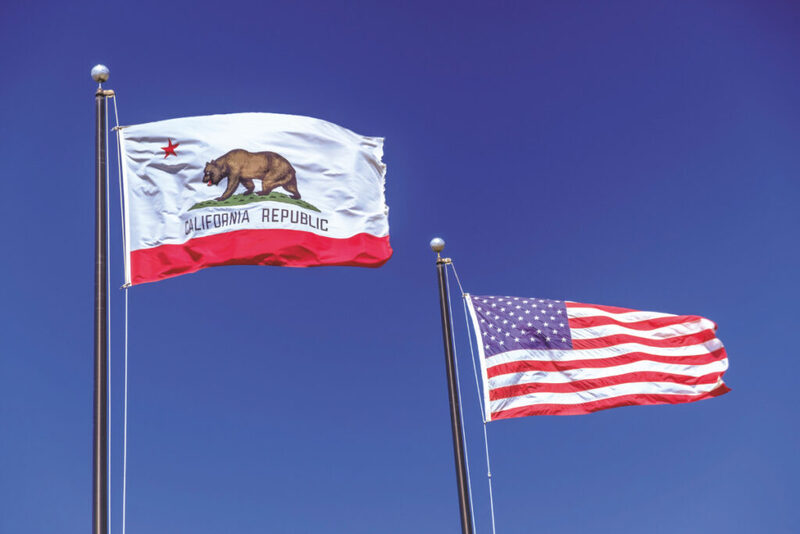
Our Pros and Cons
✅ Like Texas, the topography and ecoregions in California are numerous
✅ Full-time RVing negates California’s extremely high housing costs
⛔California’s gas and diesel prices are sky-high, along with road limitations for 40′ + RVs
Though California is huge, with just about every ecoregion imaginable to explore, its size is its own worst enemy. There are 91 national parks in the Golden State, but the sheer size of it makes for some long-distance traveling if you want to get a 100% completion rate.
If you’re an explorer at heart, however, that size works to your advantage. If you happen to own a very large RV, you’ll face some additional limitations traveling through the state as well. However, the state does have a ton of campgrounds and boondocking opportunities abound.
If you want to spend a solid year, full-time RVing in Cali, you’ll never run out of sights to see, places to shop, cultures to explore, and interesting cuisines to eat.
Despite the negatives of additional expenses, the state is still high on the list of the most accommodating states for full-time RVers, mostly because of the sheer size and number of adventures in the state.
8. Washington
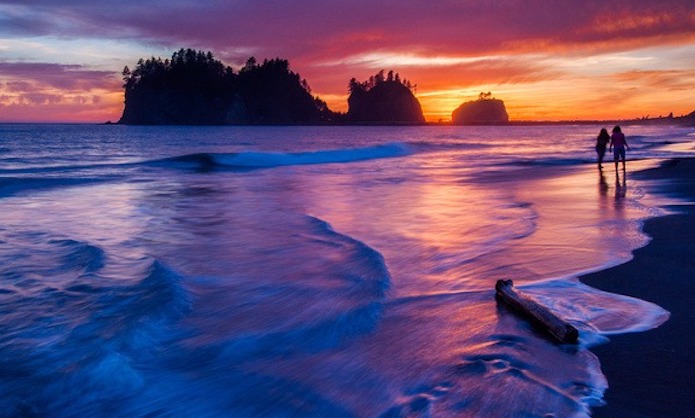
Our Pros and Cons
✅ Washington has no state income tax
✅ You can hike on an active volcano and who wouldn’t want to do that?
⛔ Sales taxes are high and establishing residency is complicated for those not in the know
First and foremost, it helps to know that if you want to make Washington your domicile state, avoid King County, since many of the big tech businesses are there, driving up local sales taxes and other costs.
Tacoma and Everett are much better options. Washington also benefits from low auto insurance rates when compared to the national average.
It certainly helps that Washington is a beautiful state and one of the best states to spend at least three seasons in. Winters are pretty harsh so, if you’re not in a four-season camper, it’s best to head south when fall is coming to a close.
Mount Saint Helens and Mount Rainier are two of the biggest reasons to explore Washington. If you want to hit up the coastline, Washington is every bit as pretty as Oregon, just beware of the tourism industry time of the year.
Best Place to Full-Time RV In Canada
The United States isn’t the only place where full-time RVing is a thing. Canada offers some exceptional spots as well and is more than worth the look if you’re ever up that way.
Geography lesson: Canada has provinces and territories, not states so these are two of the best locations in the province of British Columbia on Canada’s beautiful west coast. The West Coast has mild winters compared to the rest of the country and has a decent-sized winter RV population.
The rest of Canada gets pretty cold and accumulates a lot of snow over the long winters so although great for RVing outside of winter, full-timing isn’t as enjoyable.
1. Vancouver Island
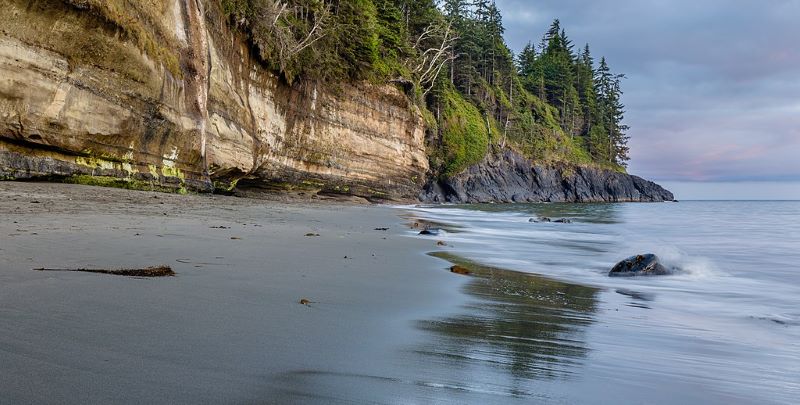
Our Pros and Cons
✅ Opportunities for off-grid or semi-off-grid living
✅ Beautiful area with three seasons of generally agreeable weather
⛔ Costs of goods and services are higher on Vancouver Island than most of British Columbia
Though the population on Vancouver Island is on an upward trend, it’s hard to argue with the fact that it’s one of the more peaceful and serene areas for full-time RVing.
It’s a good idea to work from home, however, since the job market on the island isn’t exactly booming. Fortunately, that’s one advantage that most full-time RVers bring with them, retirement or a work-from-home job.
As an island, extensive travel is limited, unless you like spending time on a ferry, going back and forth. The sights and sounds on Vancouver Island are serene and often stunning, making it a hard place to leave off the list.
2. Osoyoos
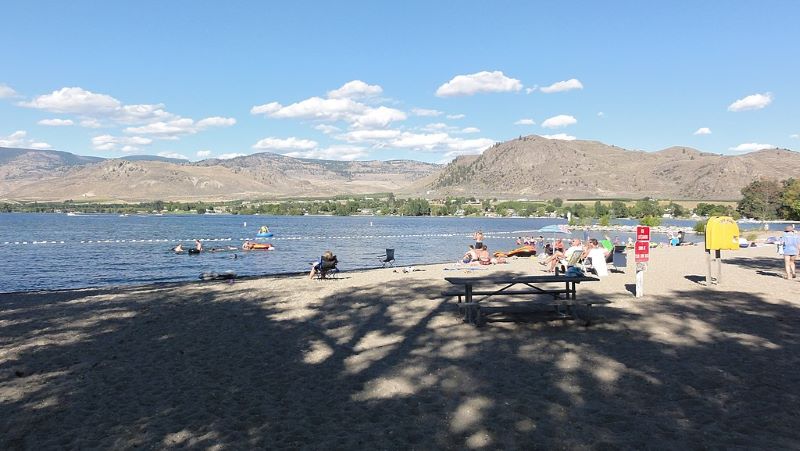
Our Pros and Cons
✅ Known for milder winters, from a Canadian’s point of view, at least
✅ Some campgrounds in Osoyoos are open all year long
⛔ A little on the expensive side in terms of cost of living, thanks to being a part of a “banana belt”
Osoyoos, like Vancouver Island, is a part of British Columbia, and it is thought of as one of the more tolerable places in the whole of Canada throughout the winter months.
If you prefer colder weather but don’t want the local authorities to have to chip your RV out of the ice after a storm, Osoyoos should be on your radar.
The cost of living in the area is higher, however, because Osoyoos is part of a banana belt (areas with milder winters), meaning that winter isn’t a prohibitive factor for the market. If you love the idea of a sleepy little valley town, Osoyoos is a good one to put on the list.
For wine lovers and those who love fresh fruit, you’ll be in heaven in this area of the country.
Is Full-Time RVing Worth It?
For the uninitiated, full-time RVing probably seems fairly intimidating. However, as with anything in life, experience changes perspective and it’s a lot less complicated than you think. It does come with its own challenges, but nothing extraordinary. It’s just different.
The kind of freedom it provides is inarguably one of the best benefits of full-time RVing. And, if you play your cards right, it’s more affordable than living in and owning a home, or renting.
It does require some foresight, proper planning, and the ability to adapt to varying random circumstances. Finding the best states for full-time RVing that fit your needs is key to an enjoyable experience.
Maintenance is something that largely takes the place of mortgage payments and rental costs, as well as fuel costs. Most of which are minimized with preventative maintenance and trip planning.
If you work from home or are retired, the benefits truly soar. Mail, voting, family contact, business correspondence, and more, all take on an entirely new dynamic which you’ll learn to control or deal with in your own way.
Final Thoughts About The Best States For Full-Time RVing
Just because the above list of eight are the best states for full-time RVing, doesn’t mean the other states don’t have anything to offer. However, some of the states on this list do provide the best options for choosing a domicile.
States that are often on the bad list include North Dakota, Mississippi, Wyoming, New York, and sometimes, California (mostly because of the high prices).
When you decide to make the leap from traditional living and hit the highway, make sure you have all of your ducks in a row. The idea of living the high and largely free life on the road is just that—an idea.
If you want to make it a reality, do your homework. Full-time RVing is one of those things that has a lot more to offer when your preparation foundation is rock solid.
Are you a full-time RVer? What do you think are the best states for full-time RVing? Let us know in the comments!
Related Reading:
– RV Campgrounds vs Boondocking: Pros and Cons
– 5 Best Stealth Camper Vans for Living Off-Grid
– 22 Best Tips for Full-Time Living in a Camper
– Harvest Hosts – A Great Way to Camp for Free!
Thomas Godwin – Author and Part Time RVer
Thomas Godwin is a full-time freelance writer with a BFA in Creative Writing, a U.S. Marine, and an avid outdoorsman.
When he’s not writing, he’s raising chickens and Appleyard ducks. Thomas also constructs teardrop campers (attempting to anyway) and kayaks the Blackwater River with his wife, two daughters, and his Dobermans.

Source: https://rvblogger.com/blog/best-states-for-full-time-rving/


